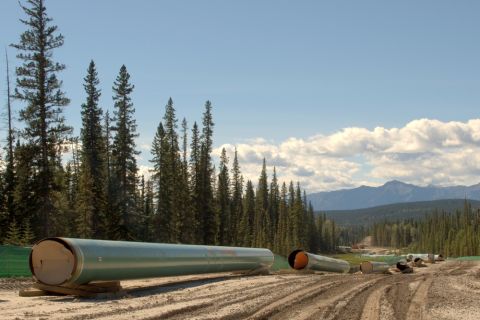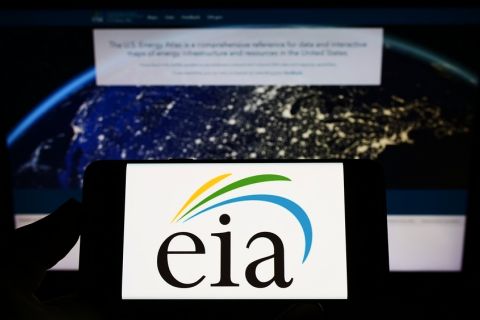On May 26, a new public independent was born, Pure Resources (NYSE: PRS), through the combination of all of the Permian Basin assets of the old Nasdaq-traded Titan Energy and Unocal Corp. Although new, Pure leaves the starting gate with 1 trillion cubic feet equivalent of gas reserves and a market capitalization of about $900 million. In the first quarter, pro forma net income was $13.7 million on revenues of $42.5 million. Net daily production is about 230 million cubic feet equivalent, 80% natural gas. Some 80% of Pure's reserves are proved developed, residing in 160 fields, with the majority in the Permian Basin. In the transaction, Titan shareholders received 0.43 of a Pure share for each of existing Titan share. Unocal owns 65.4% of the 50 million Pure shares outstanding. After several years of refocusing and restructuring, Unocal's strategy today is to pursue exploration and production in very specific areas: natural gas plays, Southeast Asia, and in deepwater Brazil, Gabon, Indonesia and the Gulf of Mexico. "Our absolute mandate is to focus only in areas where we are at least on par with others, if not a leader in activity. That's offshore and natural gas around the world. And we like to say we are the major in Southeast Asia," says Tim Ling, executive vice president of North American operations and a Unocal board member. So, what is Unocal doing in the oily Permian, far from shore? Speaking in Houston recently, Ling explained: "Our dilemma was that we had good assets-we know that because everybody was offering to buy them-yet the Permian is not part of our focus. At the same time, we didn't want to sell the assets and give away their upside. We had the same problem with our assets in the Rockies, so we did a deal with Tom Brown Inc. in 1998. We still own 17% of TBI." Titan's motivation was that it had more opportunities than capital during the last downturn. "We saw potential in the Permian and in potential new core areas, so we sold our subsidiary, Offshore Energy Development Corp. (which had just made one of the largest Shelf discoveries in the Gulf of Mexico in years), to pay down our debt-and we were still undercapitalized. We knew we needed to sell out or get bigger," says Jack Hightower, Titan-now Pure-chairman, chief executive and president. Pure's 2000 capital budget is about $117 million, with 31% of that aimed at exploration. The company owns interests in most of the deep-gas plays in the underexplored Delaware Basin in West Texas. It plans to apply 3-D seismic, horizontal drilling and other technology to these plays, many of which were discovered in the 1920s and '30s. In their careers, Pure's principals have drilled more than 2,500 wells, including more than 600 horizontals. Employees and management own 14.3% of Pure's common stock. "Pure is not just a sleepy, mature, Permian Basin company," says Hightower. "We have a long reserve life and great legacy assets in a focused area, but we plan to exploit the deeper gas zones as well. We have seven rigs running, three of which are pursuing deep-gas plays." -Leslie Haines
Recommended Reading
Imperial Expects TMX to Tighten Differentials, Raise Heavy Crude Prices
2024-02-06 - Imperial Oil expects the completion of the Trans Mountain Pipeline expansion to tighten WCS and WTI light and heavy oil differentials and boost its access to more lucrative markets in 2024.
US Gulf Coast Heavy Crude Oil Prices Firm as Supplies Tighten
2024-04-10 - Pushing up heavy crude prices are falling oil exports from Mexico, the potential for resumption of sanctions on Venezuelan crude, the imminent startup of a Canadian pipeline and continued output cuts by OPEC+.
EIA: Oil Prices Could Move Up as Global Tensions Threaten Crude Supply
2024-02-07 - Geopolitical tensions in the Middle East and ongoing risks that threaten global supply have experts questioning where oil prices will move next.
The Secret to Record US Oil Output? Drilling Efficiencies—EIA
2024-03-06 - Advances in horizontal drilling and fracking technologies are yielding more efficient oil wells in the U.S. even as the rig count plummets, the Energy Information Administration reported.
What's Affecting Oil Prices This Week? (March 11, 2024)
2024-03-11 - Stratas Advisors expects oil prices to move higher in the middle of the year, but for the upcoming week, there is no impetus for prices to raise.




